
THREE species are included in the genus Sialia (bluebirds): the eastern bluebird (S. sialis), western bluebird (S.mexicana) and mountain bluebird (S. currucoides). My first bluebirds were eastern bluebirds that I saw at the beginning of the 1990s with my breeding friend Willi Wählen in Heinsberg.
At that time, bluebirds were quite rare in captivity and a lot of clutches were infertile so that it was difficult to acquire offspring. At some point, however, more and more breeding successes began and one heard again and again of successful offspring of the eastern and western bluebird pairs.
Before long a small captive population had been established. By contrast, mountain bluebirds are not at all established, or only very small numbers are in breeders’ hands.
Many years later, in the autumn of 2013, the first bluebirds arrived in my aviaries. I was able to get western bluebirds by buying and exchanging with three other breeders and putting together matching pairs. Right away we managed to “multiply” the species between us. In this article I would like to introduce the western bluebird and report on my own experiences with it.
Description
Western bluebirds are about 18cm (7in) in length. Sexual dimorphism is clearly visible. In the male, the head, throat and tail are blue. The upperparts are bright blue somewhat interspersed with brownish. The underside is reddish-brown, brightest on the chest.
この記事は Cage & Aviary Birds の December 04, 2019 版に掲載されています。
7 日間の Magzter GOLD 無料トライアルを開始して、何千もの厳選されたプレミアム ストーリー、9,000 以上の雑誌や新聞にアクセスしてください。
すでに購読者です ? サインイン
この記事は Cage & Aviary Birds の December 04, 2019 版に掲載されています。
7 日間の Magzter GOLD 無料トライアルを開始して、何千もの厳選されたプレミアム ストーリー、9,000 以上の雑誌や新聞にアクセスしてください。
すでに購読者です? サインイン
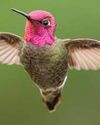
The World's Best-Known Hummingbird?
Intensively studied, the gem-like Anna’s hummingbird is a welcome visitor to the gardens of America’s most populous state: California. Bill Naylor investigates its life history
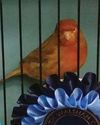
The charm of the English Cinnamon
Despite its long and complicated history, the true Cinnamon canary is still with us – in the hands of a tiny group of breeders. DONALD SKINNER-REID reckons it deserves wider appreciation
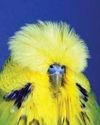
Spangles: a personal overview
FRED WRIGHT relates a budgie story of over-exploitation, consequent problems and abundant potential for the future

New converts to old breeds
Old and rare canaries have a reputation for adding fresh interest and challenge to the hobby. PETE HOOK and NICK JOY agree, and explain the birds’ charm to Dave Brown

Themed aviaries are a hit with the public at annual Stafford show
DECORATIVE AVIARY DISPLAYS from a CBS and an online bird keeping advice group were voted in the top three by visitors for the inaugural Stafford Aviary Competition.
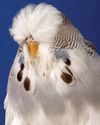
Pieds with potential
More than just a lesser variety, the dominant pied will introduce challenge and change into most studs, reckons CLIVE WAKEMAN. Here he discusses pairings to try and others to avoid
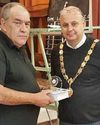
Club News
Welcome to the club and show pages – the bit that’s all about you Results: convention, specialist & rare and Breeder of the Year
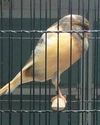
Canaries Month by Month:
With Christmas around the corner, BRIAN KEENAN is well into his winter programme, and reckons he might deserve a nice outcross
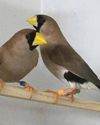
Smart Choice, Docile Nature
Dave Brown welcomes the masked grassfinch to his birdroom and shares advice on this lovely Australian species
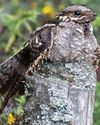
The truth about the ‘flying toad'
Odd local names and weird superstitions can’t hide the beauty and elegance of the nightjar, a species that has made a fascinating subject in a few zoo collections, reveals BILL NAYLOR